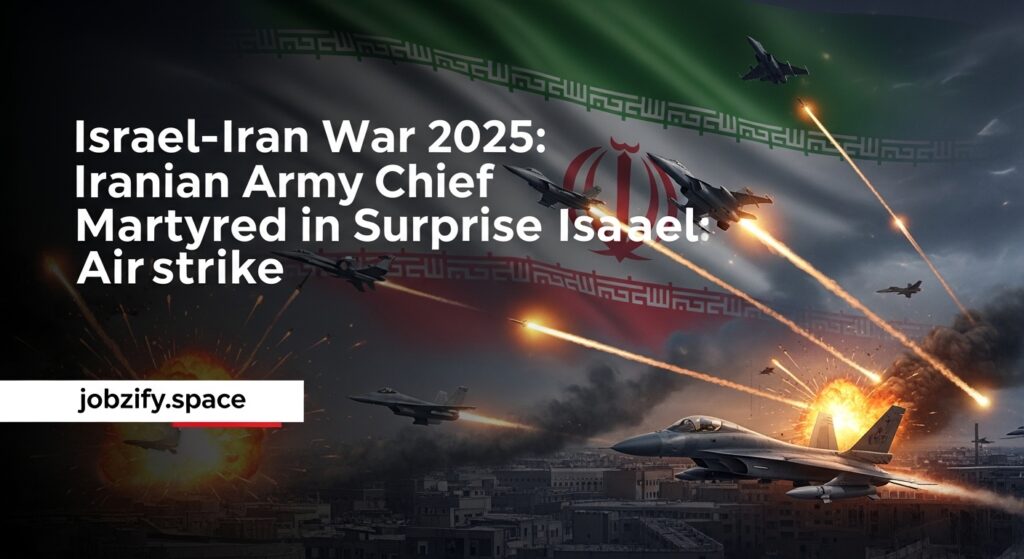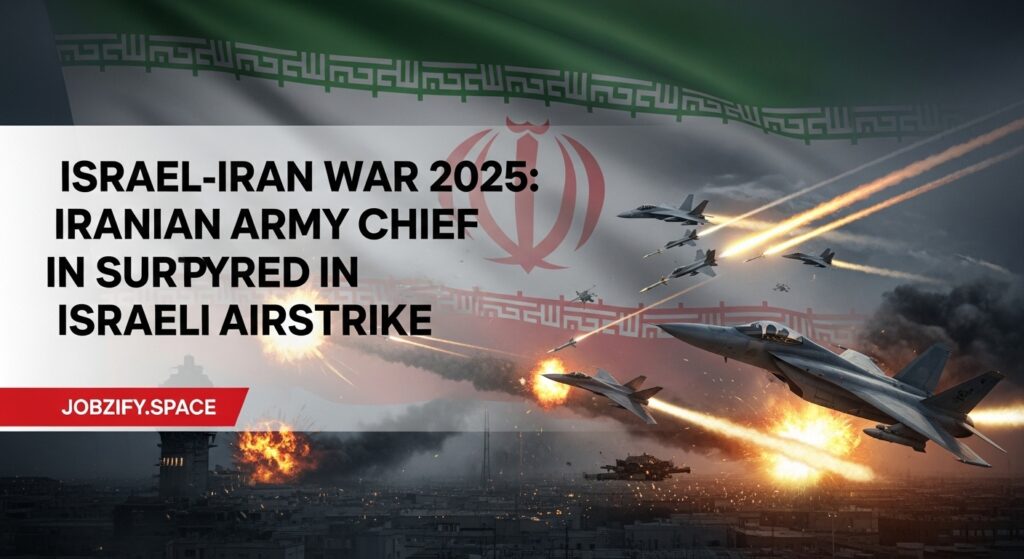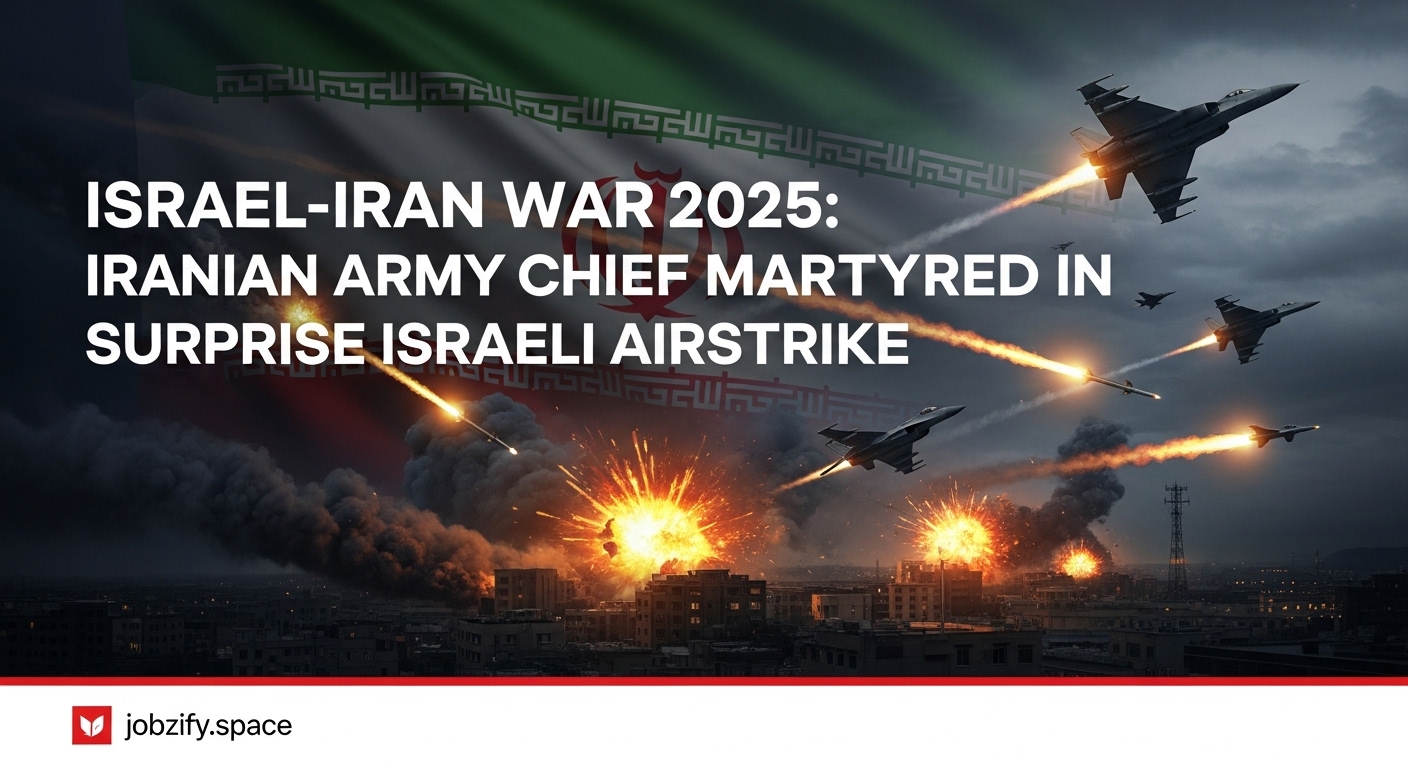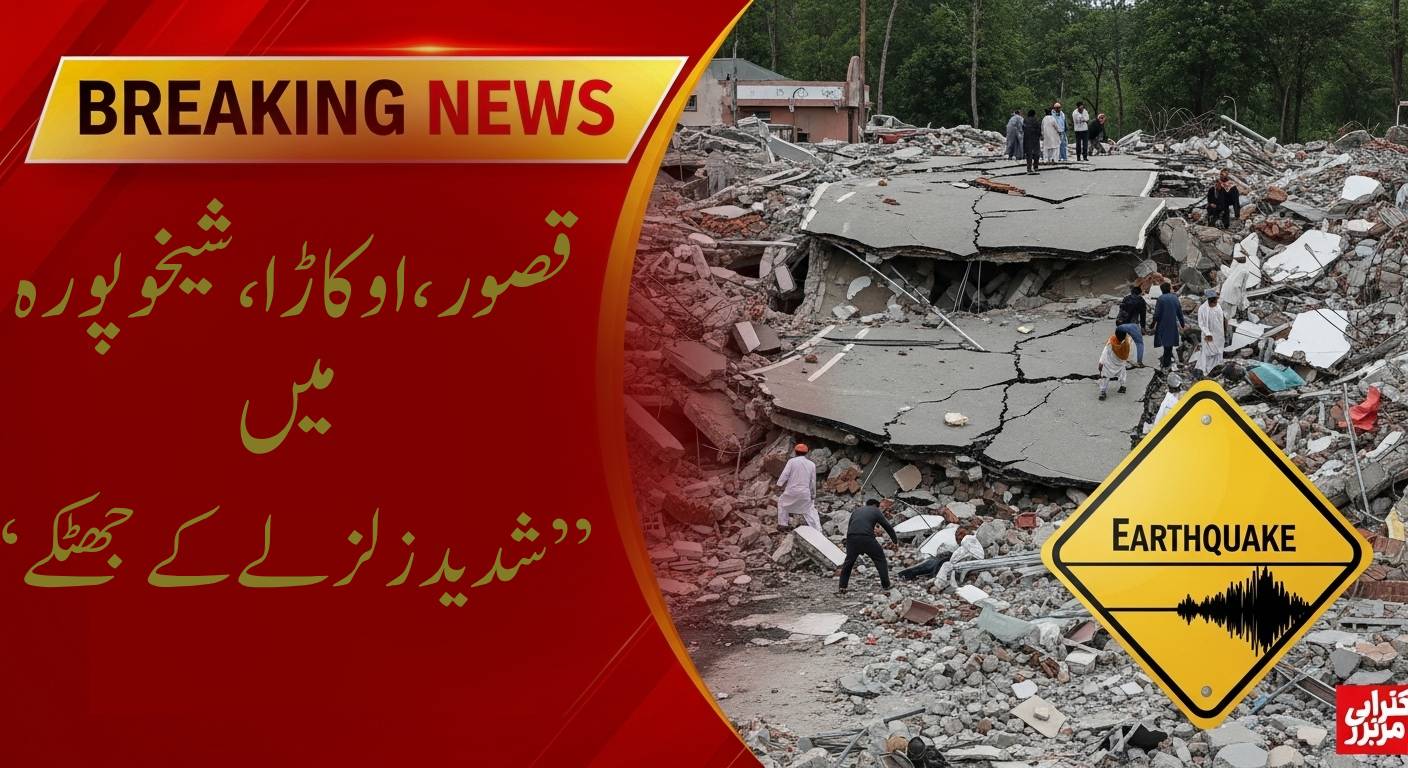Get live updates on the escalating Iran-Israel war. Details on the deadly missile strikes in Tel Aviv, rising casualties, and Iran’s threat to leave the NPT.
Table of Contents
Middle East on Brink of All-Out War as Iranian missile strikes Pound Tel Aviv, Haifa
The simmering conflict between Iran and Israel has erupted into a full-blown, direct military confrontation, with Iranian ballistic missiles striking deep into Israel’s major population centers before dawn today, Monday, June 16, 2025. In the most significant escalation to date, missile barrages hit residential areas in Tel Aviv and the port city of Haifa, killing at least eight people and wounding over 100, shattering any remaining semblance of a “shadow war.”
The pre-dawn blitz, which saw homes destroyed and a power plant set ablaze, prompted an immediate and furious response from Israel’s Defence Minister, who warned that the residents of Tehran would “pay the price, and soon.” This direct threat comes as Israel continues its own punishing air campaign against Iran, which it claims has gutted Iran’s military leadership and missile capabilities. With casualty figures mounting into the hundreds on both sides, the conflict has now entered a terrifying new phase, triggering frantic calls for de-escalation from global powers and sending shockwaves through the world economy.
This comprehensive article provides a detailed overview of the latest developments in the Iran-Israel war, the escalating military claims, the critical nuclear dimension, and the global diplomatic scramble to avert a wider regional catastrophe.
Today’s Flashpoints: A Region Engulfed in Fire (as of Mon, June 16): Iran-Israel War
The fourth day of this conflict has been marked by unprecedented direct attacks on civilian centers and infrastructure, signaling a dangerous breakdown in the rules of engagement.
- Pre-Dawn Missile Barrage: In the early hours of Monday, Iran launched fewer than 100 ballistic missiles toward Israel. Despite Israel’s multi-layered air defense system, military authorities confirmed that at least seven missiles penetrated the shield. The impacts were devastating. Several residential buildings in a densely populated Tel Aviv neighborhood were destroyed, and a power plant near the port of Haifa was seen burning. The U.S. Embassy branch in Tel Aviv also sustained minor damage.
- Mounting Civilian Casualties: The human cost is rising rapidly. Israeli emergency services confirmed at least eight people were killed in the overnight strikes, bringing the total death toll in Israel to 24 civilians since Friday. In Iran, the figures are far higher, with the Iranian health ministry reporting that the death toll has reached at least 224, claiming that civilians account for 90% of the casualties. This stark disparity is at the heart of the intense information war being waged by both sides.
- Eyewitnesses in Tel Aviv: The terror of the attacks was palpable on the ground. “It’s terrifying because it’s so unknown,” said Guydo Tetelbaun, a 31-year-old chef in Tel Aviv, who described how the door to his street’s bomb shelter was blown in by the force of a nearby blast. The popular Shuk HaCarmel market was also struck, a site that would typically be teeming with people.
- Hospital Damaged in Iran: Further fueling claims of indiscriminate attacks, Iranian state media reported that the Farabi hospital in the western province of Kermanshah was hit in an Israeli missile attack, causing serious material damage to the facility.

The Military Situation:Iran-Israel War
As the physical battle rages, both nations are making bold claims about their military successes, aimed at shaping perceptions both at home and abroad.
- Israel Claims Aerial Superiority Iran-Israel War: The Israeli Defence Force (IDF) made a significant declaration on Monday, stating it has now achieved aerial superiority over Iran. A military spokesman asserted that its aircraft can now operate with relative freedom over Iranian airspace, a feat that allows them to use less costly short-range guided munitions.
- Decimation of Iran’s Capabilities: To back this claim, the IDF stated it has destroyed more than a third of Iran’s surface-to-surface missile launchers and has killed four senior intelligence officials from the elite Islamic Revolutionary Guard Corps (IRGC), including the head of the IRGC’s intelligence unit.
- Iran’s “New Method” Iran-Israel War: In contrast, the IRGC claimed its latest attack employed a “new method” that successfully caused Israel’s complex air defense systems to target each other, allowing Iranian missiles to successfully strike their targets. While Tehran has not provided details, this claim is meant to counter the Israeli narrative of dominance and signal that Iran can still inflict significant damage.
The Nuclear Escalation: Iran Threatens to Leave NPT
The conflict has taken a perilous turn towards the nuclear realm, with Iran now threatening to upend decades of international arms control agreements.
In a direct response to Israel’s initial strikes on its nuclear facilities, Iran’s foreign ministry confirmed on Monday that its parliament is preparing a bill to leave the Nuclear Non-Proliferation Treaty (NPT). The NPT is the cornerstone of global efforts to prevent the spread of nuclear weapons. While Iranian officials maintain they are opposed to developing such weapons, this move is the ultimate diplomatic threat, signaling that all bets are off if the attacks continue.
This development puts the international community in an extremely difficult position. Israel is not a signatory to the NPT and is widely presumed to possess a nuclear arsenal. Iran’s potential withdrawal from the treaty would effectively dismantle the inspection and verification regime overseen by the International Atomic Energy Agency (IAEA), leaving the world in the dark about its nuclear intentions and capabilities at the most dangerous moment imaginable.
Global Reactions & Diplomatic Scramble: Iran-Israel War
The direct state-on-state war has galvanized world leaders, who are desperately trying to find an off-ramp to the escalating violence.
- G7 Meeting Under Pressure: Iran-Israel War Leaders of the G7 nations are meeting in Canada, with the Iran-Israel war now dominating the agenda. The focus has shifted to pressuring U.S. President Donald Trump to justify his optimistic statements that a “deal” could be reached for “peace soon.” The international community is looking to Washington to leverage its influence with Israel to de-escalate.
- Mediation Offers: Turkish President Recep Tayyip Erdoğan and Russian President Vladimir Putin held a joint call, condemning the Israeli “act of force” and offering to facilitate a return to nuclear negotiations as a path to peace.
- Economic Fallout: The conflict is already having a tangible economic impact. Iran’s currency, the rial, has lost at least 10% of its value against the U.S. dollar since the conflict began on Friday, exacerbating the economic hardship for ordinary Iranians. On a global scale, the risk to geopolitical stability has caused jitters in the energy markets, with fears that a wider conflict could disrupt oil supplies from the Middle East.

Analysis: From Covert Shadows to Open Warfare: Iran-Israel War
The transition from a long-running, deniable “shadow war” to open, declared military strikes represents a catastrophic failure of deterrence and diplomacy. For years, the conflict was fought through proxies in Syria, Lebanon, and Iraq, and through cyber-attacks and assassinations. The current crisis was triggered by Israel’s decision to launch a massive preemptive strike against Iran’s nuclear and missile programs, a move it deemed necessary to avert an existential threat.
This act, however, crossed a red line for Tehran, compelling it to respond directly to restore its own deterrence. The result is the current cycle of tit-for-tat retaliation that threatens to spiral out of control. Both sides are now locked in a deadly serious test of military capability and national will.
Israeli Defence Minister Israel Katz’s warning—”The arrogant dictator of Tehran has become a cowardly murderer who targets the civilian home front… The residents of Tehran will pay the price, and soon”—followed by a hasty clarification that Israel does not intend to harm civilians, encapsulates the volatile and dangerous rhetoric fueling this war.
The world now watches, hoping that the voices calling for restraint can drown out the sounds of explosions over Tel Aviv and Tehran. The path forward is uncertain, but what is clear is that the Middle East has been pushed into its most dangerous moment in decades, with the consequences of failure too grim to contemplate.




